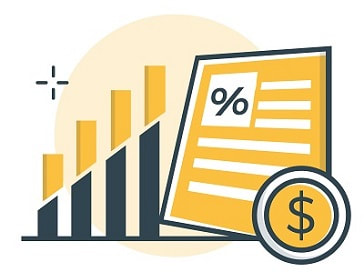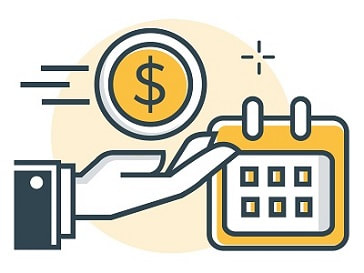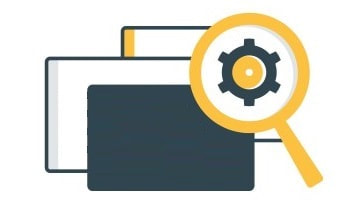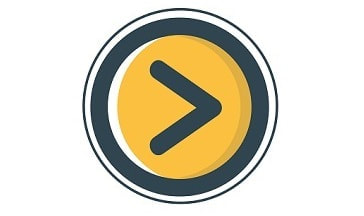How to Buy and Sell Bonds
This guide outlines what a bond is, the different types, the pros and cons, where to buy bonds and investing options within New Zealand.
Updated 1 May 2024
Summary
To help you understand everything about investing in bonds, we cover:
Are you looking to invest in New Zealand corporate bonds? Our dedicated NZ corporate bonds guide explains everything you need to know.
- Bonds are widely held by almost every KiwiSaver fund, but most investors are unfamilair with how they function.
- This guide outlines what a bond is, the different types, the pros and cons, where to buy bonds and investing options within New Zealand.
- While buying bonds directly through a broker is less and less common, many New Zealand companies rely on bond issuance to fund their day to day operations.
To help you understand everything about investing in bonds, we cover:
- Pros and Cons of Investing in Bonds
- Types of Bonds
- Buying Bonds - Where, What and How
- Bond Terms - Must-Know Terminology Explained
- How to Evaluate a Bond - Four Must-Ask Questions
- Buying Bonds in New Zealand
Are you looking to invest in New Zealand corporate bonds? Our dedicated NZ corporate bonds guide explains everything you need to know.
Know This First: What Are Bonds?
A bond is a unit of debt. It’s the opposite of a share in a company, which is a unit of equity. When you buy a share, you own a portion of a company or other entity. When you buy a bond, you are essentially lending money to a company, government, or other entity. They then owe you repayment of that money, with interest, according to specified terms. The financial health of the borrowing entity is the deciding factor in its ability to repay the debt.
How Does the Value of a Bond Get Decided?
How Does the Value of a Bond Get Decided?
- A bond has a “face value,” but publicly-traded bonds derive their value from supply and demand.
- A bond that is in high demand and/or short supply may be worth more than the face value on a given trading day (sold at a premium).
- A bond that is in low demand and/or plentiful supply may be worth less than the face value (sold at a discount).
- Bonds that trade at their face value are sold at par. The closer a bond approaches its date of maturity, the closer its trading value tends to approach the face value.
How are Bond Interest Rates Set?
- Bonds have fixed interest rates. The interest rate is usually assigned based on the creditworthiness of the issuing borrower.
- In New Zealand, the interest rates of government bonds are set by the New Zealand Treasury. For example, Kiwi Bond interest rates are set and adjusted by the New Zealand Debt Management Office (NZDMO) based on moving averages of wholesale rates.
Pros and Cons of Investing in Bonds
Bonds are usually low-risk, but not always. Our list of pros and cons explains why they won't appeal to everyone.
Pros:
Cons:
Are you looking to invest in New Zealand corporate bonds? Our dedicated NZ corporate bonds guide explains everything you need to know.
- Fixed, predictable returns - bonds don't vary in their interest rate, so you know what the return of your investment will be upfront.
- Often less risky and volatile than shares - bonds aren't equity, they're debt, so the value won't move around like shares do. If you invest $1,000 in a bond, unless the bond is distressed, you will receive $1,000 back plus your interest.
- Clear credit ratings for risk analysis - bonds are graded AA, BB+ or similar ensuring you have a clear indication of the risk of the company or government who is issuing the bond.
- Numerous investment options - bonds can be purchased directly, via an ETF, via a KiwiSaver or managed fund, and the entry costs are lower than ever.
Cons:
- A larger initial investment is usually required if you buy a bond directly - unless using an investing platform, many bonds issued by companies have $1,000 or even $5,000 minimum investments.
- Less liquid than cash - while you can sell a bond-backed ETF in a day or withdraw from a bond fund overnight, not all bonds have a secondary market you can sell them on. If the bond becomes distressed, you may find its value decreases.
- Direct exposure to interest rate changes - the bond market is influenced by market interest rates. If interest rates fall, bond interest rates (and therefore potential returns) fall as well. Furthermore, if interest rates rise, the value of a bond decreases as it has less value amongst investors who can get better returns elsewhere. The devaluation of a bond portfolio caused a handful of American banks to go bust in 2023, notably Silicon Valley Bank.
- Minimal chance of aggressive growth - unless you're buying distressed bonds believing there will be a recovery, bonds don't increase in value, so your capital gains will be minimal if not zero.
- Chance of the issuer redeeming the bond early - depending on the terms of the bond, if a bond issuer repays their bond early, your investment will be cashed out in full. This may mean an opportunity cost from other (more lucrative) investments that were available at the time you purchased the bond.
Are you looking to invest in New Zealand corporate bonds? Our dedicated NZ corporate bonds guide explains everything you need to know.
Types of Bonds
Bonds come in all forms, risks and terms. To summarise the typical New Zealand bond market, we have listed the different type of bonds below:
Nominal Bonds and Inflation-Indexed BondsNominal bonds are issued by the Crown for fixed terms of one year or more.
Inflation-indexed bonds are issued by the Crown for fixed terms of one year or more. “Inflation-indexed” means the principal bond value is adjusted daily in response to inflationary or deflationary pressures. Our view: Both of these bonds are not marketed to retail investors directly. We've listed them to ensure completeness; you can read more about nominal and inflation-indexed bonds on the NZ Treasury website. |
Treasury Bills and Kiwi BondsTreasury Bills are issued by the Crown for fixed terms of three months, six months, or one year.
Kiwi Bonds are New Zealand government bonds, only available for purchase by New Zealand residents. The Kiwi Bond is currently rated AA+, the second-highest credit rating. Our view: This is arguably the lowest risk bond available with investors directly lend money to the New Zealand government. While the interest rate is low, the bonds are in NZD, so there is no currency risk. |
Other Government BondsMany foreign governments issue bonds to raise funds for public works and public goods. Government bonds are considered less risky due to most governments’ ability to enforce taxation. However, some governments have better credit ratings than others.
Our view: The risk of an overseas bond depends on the issuer. While some countries have previously defaulted on their government bonds (Argentina, Lebanon, Venezuela and Ecuador), most don't. However, no bond is without credit risk. There is also foreign exchange risk as most foreign government debt is issued in USD or Euros. If the NZD gets stronger against the currency you invest in, your bond will, in NZD terms, be worth less. |
Corporate BondsCompanies and corporations may issue bonds to raise capital for expansion or innovation. The pricing and interest rate of a corporate bond depends on the creditworthiness of the issuing company.
Remember, when you buy a corporate bond, you don’t own part of the company like when you buy stock. You own a share of that company’s debt. Our view: Corporate bonds are issued by companies of all sizes all over New Zealand. They include banks, credit unions and finance companies. Sorted's bond list has more details. As with any investment, the creditworthiness of the company behind the bond is critical to deciding whether or not to invest. Many people lost money in finance companies in 2008 when their 'first-ranked bonds' became worthless. Are you looking to invest in New Zealand corporate bonds? Our dedicated NZ corporate bonds guide explains everything you need to know. |
High-Yield BondsThe above bonds are considered “investment-grade,” with creditworthiness high enough to be confident of repayment. High-yield bonds (also known as “junk bonds”) have lower credit ratings. The risk of total loss is higher, but they have higher interest rates to compensate.
Our view: Risky bonds carry higher returns, but only if the bond issuer can make payments. All too often, companies who cannot get bank loans or other forms of debt issue bonds directly with disastrous results later on when the company experienced financial difficulties. Always understand exactly what company is issuing the bonds and the risks involved. |
Buying Bonds - Where, What and How
There are a number of ways to buy bonds - we've listed the most popular options below.
1. Securities Brokers
Stockbrokers, also known as “securities brokers,” are the go-to source for bond trades. They may act as licensed go-betweens for trades on NZX or another exchange. Sometimes, a certain brokerage may have the privilege of selling the initial public issue of a new bond, which investors can often buy at a discount. This is the bond version of a stock IPO.
Brokerage transactions can be executed in person, over the phone, or online via a Cloud-based trading platform.
2. Kiwi Bonds
Residents of New Zealand can buy Kiwi Bonds directly from the Kiwi Bond registrar. This guide from the government explains more.
3. The New Zealand Stock Exchange
The New Zealand Stock Exchange (NZX) is a publicly-owned stock exchange headquartered in Wellington. Bonds traded on NZX must be registered in New Zealand. Bonds can be bought individually, or as part of an exchange-traded fund (ETF). An ETF is a publicly-traded fund containing a curated mix of stocks and bonds.
4. Foreign Stock Exchanges
Residents of New Zealand may buy bonds (or bond-exposed ETFs) listed on foreign exchanges, like the New York Stock Exchange, London Stock Exchange, or Tokyo Stock Exchange. Trades can be facilitated by a licensed broker, either in-person or online.
Note that foreign trades must be executed in the currency of record for the exchange—USD in New York, GBP in London, etc. This carries the added risk of currency losses, should the local currency weaken compared to the New Zealand Dollar.
1. Securities Brokers
Stockbrokers, also known as “securities brokers,” are the go-to source for bond trades. They may act as licensed go-betweens for trades on NZX or another exchange. Sometimes, a certain brokerage may have the privilege of selling the initial public issue of a new bond, which investors can often buy at a discount. This is the bond version of a stock IPO.
Brokerage transactions can be executed in person, over the phone, or online via a Cloud-based trading platform.
2. Kiwi Bonds
Residents of New Zealand can buy Kiwi Bonds directly from the Kiwi Bond registrar. This guide from the government explains more.
3. The New Zealand Stock Exchange
The New Zealand Stock Exchange (NZX) is a publicly-owned stock exchange headquartered in Wellington. Bonds traded on NZX must be registered in New Zealand. Bonds can be bought individually, or as part of an exchange-traded fund (ETF). An ETF is a publicly-traded fund containing a curated mix of stocks and bonds.
4. Foreign Stock Exchanges
Residents of New Zealand may buy bonds (or bond-exposed ETFs) listed on foreign exchanges, like the New York Stock Exchange, London Stock Exchange, or Tokyo Stock Exchange. Trades can be facilitated by a licensed broker, either in-person or online.
Note that foreign trades must be executed in the currency of record for the exchange—USD in New York, GBP in London, etc. This carries the added risk of currency losses, should the local currency weaken compared to the New Zealand Dollar.
Bond Terms - Must-Know Terminology Explained
The characteristics of a bond are outlined in the bond’s term sheet. Bond terms to be aware of include:
- Offer Amount. The NZD value of bonds included in the issue.
- Face Value / Issue Price. The face value of each unit of bond issued. Remember, bonds may trade on public exchanges at a premium, a discount, or at par based on this face value.
- Minimum Investment. The minimum NZD value you need to invest. With bond ETFs and managed funds, it may be $1 if you use an investment platform. Buying bonds directly from the issuer via a broker may require a more substantial minimum investment.
- Term. The length of time between issue and repayment. For example, if today is 1 January 2021 and the bond matures on 31 December 2022, the bond has a two-year term.
- Maturity Date. The end date of the bond, after which the issuer is required to repay the debt in full according to the terms. Some bonds have no maturity date but continue indefinitely. These are called “perpetual bonds.”
- Interest Rate. Often referred to as the “coupon” for the bond, an annual interest rate paid to investors for the use of their money.
- Interest Payment Dates and Frequency. When and how often the coupon rate gets paid.
- Ranking. The “seniority” of the bond. If a company has multiple bond issues, senior bonds get paid first, junior bonds paid last. This can become significant if the issuer becomes insolvent and defaults on its bond obligations. Because they get paid first, senior bondholders are more likely to be made whole, while junior bondholders may be out of luck. For this reason, junior bonds tend to carry higher interest rates to compensate for the added risk.
- Credit Rating. Three major international companies assign bonds a credit rating ranging from B (lowest, least creditworthy) to AAA (highest, most creditworthy). The companies are Fitch Ratings (Fitch), Moody’s Investors Service (Moody’s), and Standard & Poor’s (S&P).
How to Evaluate a Bond - Four Must-Ask Questions
Before investing in a bond, there are some must-know questions to ask to determine the value and risk of the investment.
Important: As with any investment, if you don't understand it, make sure you ask questions. If you still don't understand it, it's most likely better that you don't invest.
Important: As with any investment, if you don't understand it, make sure you ask questions. If you still don't understand it, it's most likely better that you don't invest.
Can the Borrower Afford the Debt Burden?
The biggest risk for bondholders is that the issuer may default on the debt. How can you tell if an issuer can afford its debt burden?
If you can obtain the issuer’s published earnings statement from the previous year, do a little simple math as part of your due diligence. Search the statement for operating income (not the net income) and interest expense. Divide the operating income by the interest expense. If the result is 3 or above, the issuer can probably afford its debt. If the result is 2.5 or below, be cautious.
If you can obtain the issuer’s published earnings statement from the previous year, do a little simple math as part of your due diligence. Search the statement for operating income (not the net income) and interest expense. Divide the operating income by the interest expense. If the result is 3 or above, the issuer can probably afford its debt. If the result is 2.5 or below, be cautious.
What Is The Yield of the Bond?
Bond interest rates don’t change, but the trading value of the bond changes. The effective interest relative to the value is called the yield. If a bond’s value goes up, the yield goes down because the interest represents a smaller percentage of that value. If the bond’s value goes down, the yield increases.
Is the Bond Callable?
A callable bond is a bond that the issuer can “call” at any time—that is, repay the debt early. They usually do this when interest rates make this a favourable deal for them. This might not be desirable for an investor who wants to hold onto the bond long-term.
How Long Until Maturity?
As explained above, the closer to the maturity date, the more likely the bond is to trade at par. At maturity, the issuer will retire the debt at face value. Even if you like the terms, it may not be wise to buy a bond at a premium close to the maturity date, since its value is likely to decrease.
Buying Bonds in New Zealand
Anyone can invest in bonds, with KiwiSaver, managed funds, investment platforms and ETFs all offering the opportunity to get exposure. We outline the most popular options below:
1. KiwiSaver
While many KiwiSaver funds may have small investments in bonds, four funds are specifically dedicated to bond investments. These are:
2. Managed Funds and ETFs
Like KiwiSaver, some managed funds offer exposure in bonds. One popular example is the Simplicity Investment Funds' Bond Fund. For ETFs, the NZ Bond ETF (NZB) and Global Fund Bond ETF (GBF) are both available from Smartshares.
International bond ETFs can be purchased using platforms such as Hatch, Stake and Sharesies. In New Zealand, InvestNow offers a number of bond funds managed locally by the likes of Fisher Funds and Harbour Asset Management.
3. Brokers
A number of brokers offer direct bond purchases. You can see a list of available bonds on the Sorted SmartInvestor website. Brokers include:
Are you looking to invest in New Zealand corporate bonds? Our dedicated NZ corporate bonds guide explains everything you need to know.
4. The New Zealand Government
Residents of New Zealand can buy Kiwi Bonds directly from the Kiwi Bond registrar. This guide from the government explains more.
1. KiwiSaver
While many KiwiSaver funds may have small investments in bonds, four funds are specifically dedicated to bond investments. These are:
- Superlife: NZ Bonds Fund, Overseas Non-Government Bonds Fund and the Overseas Bonds Fund
- Nikko AM: NZ Corporate Bond Fund
2. Managed Funds and ETFs
Like KiwiSaver, some managed funds offer exposure in bonds. One popular example is the Simplicity Investment Funds' Bond Fund. For ETFs, the NZ Bond ETF (NZB) and Global Fund Bond ETF (GBF) are both available from Smartshares.
International bond ETFs can be purchased using platforms such as Hatch, Stake and Sharesies. In New Zealand, InvestNow offers a number of bond funds managed locally by the likes of Fisher Funds and Harbour Asset Management.
3. Brokers
A number of brokers offer direct bond purchases. You can see a list of available bonds on the Sorted SmartInvestor website. Brokers include:
Are you looking to invest in New Zealand corporate bonds? Our dedicated NZ corporate bonds guide explains everything you need to know.
4. The New Zealand Government
Residents of New Zealand can buy Kiwi Bonds directly from the Kiwi Bond registrar. This guide from the government explains more.












